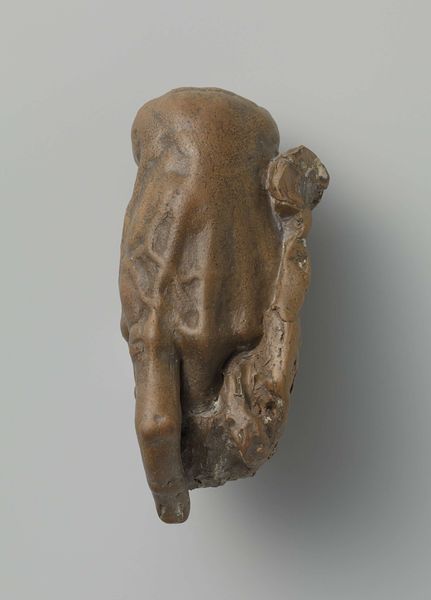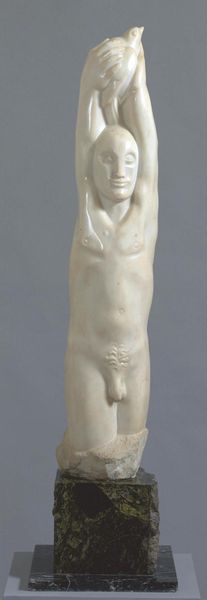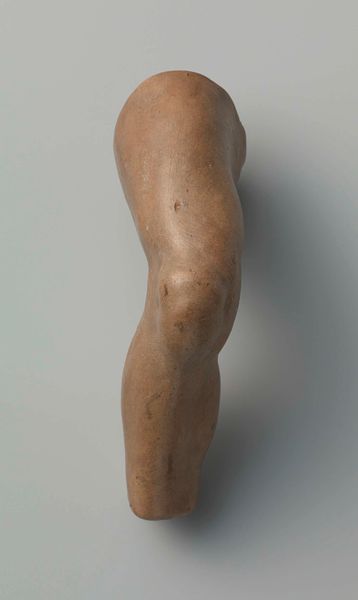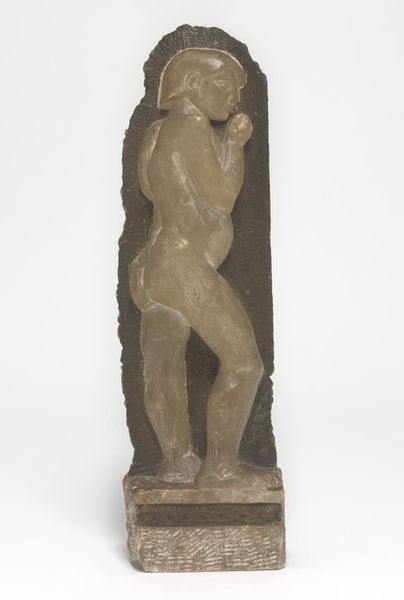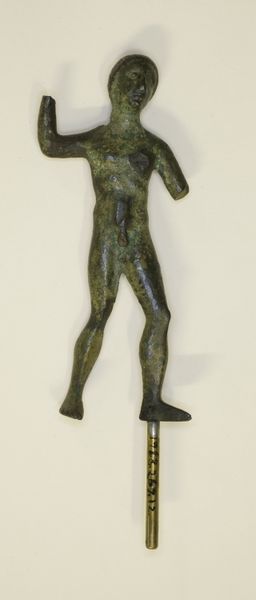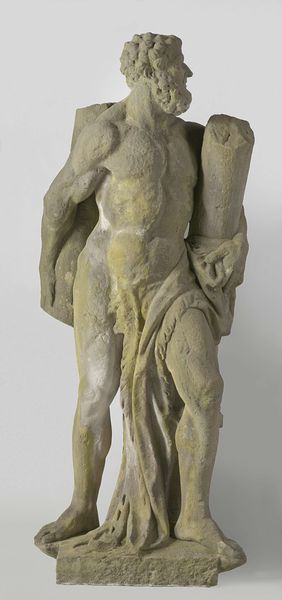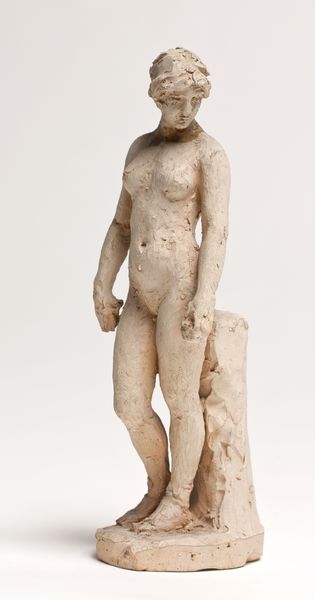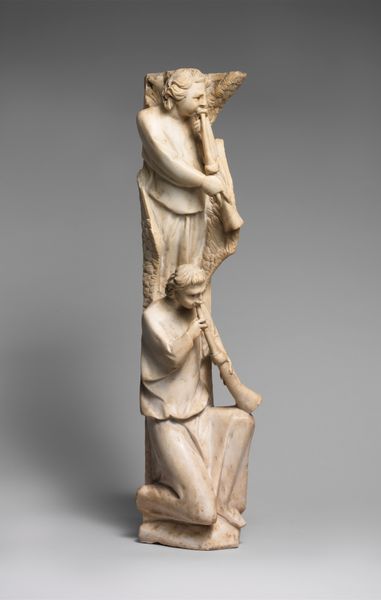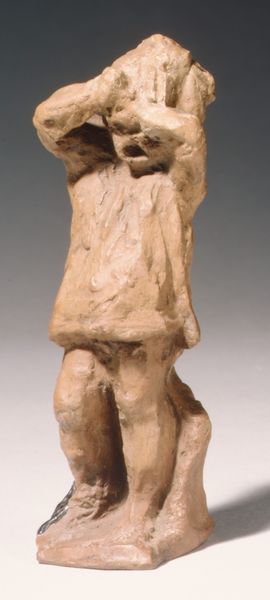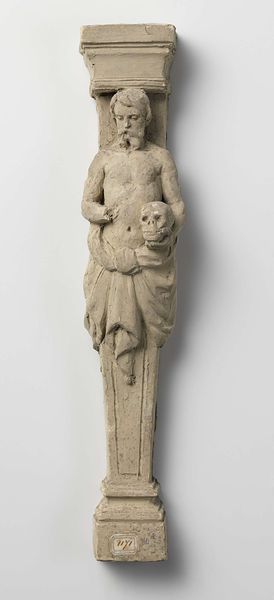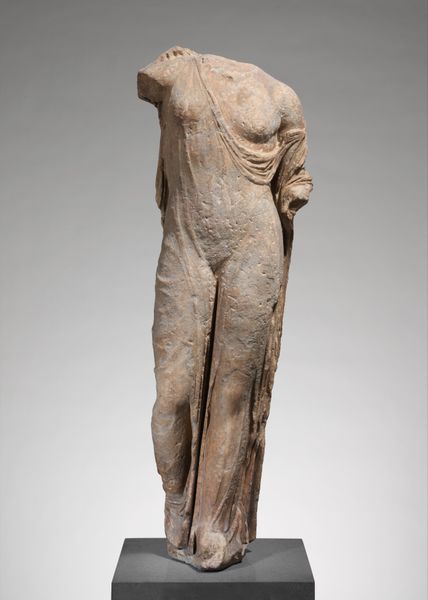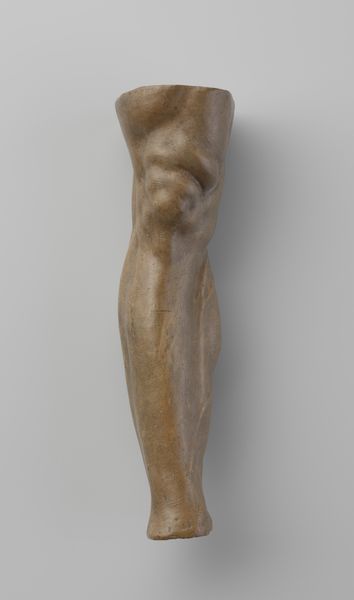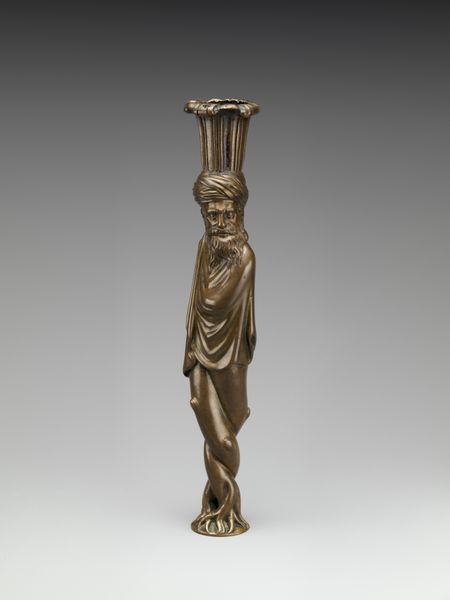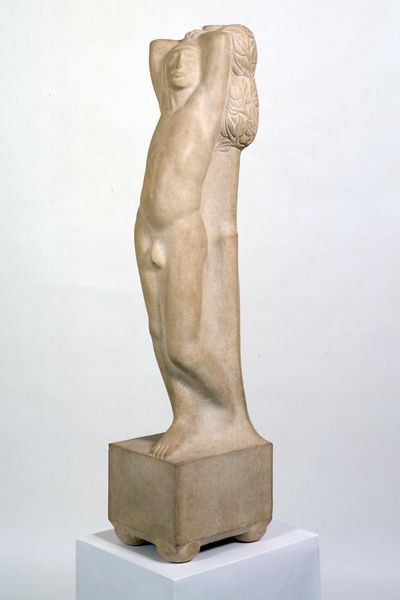
sculpture, wood
#
portrait
#
sculpture
#
mannerism
#
figuration
#
sculpture
#
wood
Copyright: Rijks Museum: Open Domain
This is a terracotta study model of a body part, made by Johan Gregor van der Schardt in the late 16th century. The clay's earthy tone and roughly textured surface, marked with the artist’s fingerprints, bring us closer to van der Schardt's process. You can imagine him carefully building up the form, perhaps using simple tools to refine the shape and add details like the miniature face. The intimate scale suggests that this wasn't intended as a finished artwork, but rather a preparatory study. Sculptors like van der Schardt relied on these models to work out the anatomy and composition of larger works, often in bronze or marble. Terracotta, being inexpensive and easily molded, allowed the artist to experiment freely. By valuing this humble material and the process of modeling, we can appreciate the artistry embedded in the everyday practices of the Renaissance workshop.
Comments
rijksmuseum over 2 years ago
⋮
This group of small models of parts of the body are carefully copied after famous sculptures, in particular by Michelangelo, in Florence and Rome. They came from the workshop of the Nijmegen sculptor Johan Gregor van der Schardt, who had a successful career in Italy, Nuremberg, and Copenhagen. They are extremely rare examples of the, in part autograph, study material of a 16th-century sculptor.
Join the conversation
Join millions of artists and users on Artera today and experience the ultimate creative platform.
